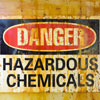
Don't Hold Chemical Security Hostage
Although the calendar says November, it’s beginning to feel like Groundhog Day for a lot of chemical manufacturers across the country that are again waiting on Washington, D.C., to permanently reauthorize the nation’s chemical security rules, thereby giving the industry the regulatory certainty it needs.
In 2007, at Congress's direction, the Department of Homeland Security (DHS) established the Chemical Facility Anti-Terrorism Standards (CFATS) to regulate our nation's high-risk chemical facilities. The risk-based performance standards that make up CFATS are strong and effective. They were created with collaborative input from chemical companies and trade associations like SOCMA. Since the standards’ finalization, many of our member companies have made significant capital investments toward compliance.
The original authorization, included in a 2006 appropriations bill, granted the Department three years to implement CFATS. As a result, the regulations have been extended since 2009 through a series of appropriations bills, omnibus bills and continuing resolutions. This need for annual reauthorization of the program has created great uncertainty for facilities regulated by CFATS. Without the assurance of a long-term authorization of these regulations, companies are impeded from investing in costly security measures today for fear that they might not satisfy regulatory standards tomorrow.
Congress clearly recognizes the importance and immediate need for a CFATS extension. The House Committees on Homeland Security and Energy and Commerce have both reported multi-year CFATS reauthorization legislation this year with strong bipartisan support. H.R. 901, sponsored by Representative Dan Lungren, and H.R. 908, sponsored by Representative Tim Murphy, both extend CFATS for an additional seven years. In the Senate, the Homeland Security and Government Affairs Committee approved legislation (S. 473), sponsored by Senator Susan Collins, to extend CFATS for three years.
SOCMA has supported all three bills throughout their progress, and appreciates the commitment of the sponsors, committee chairmen and ranking members and congressional staff that have made chemical security a priority for the 112th Congress. However, despite overwhelming bipartisan support, neither chamber has scheduled any bill for a final vote.
Long-term chemical security has become an inadvertent casualty of an increasingly jam-packed legislative agenda, a narrow timeline for approval, and the urgency for Congress to address other key legislative priorities. In July, industry saw a glimmer of hope with the committee approval of all three bills within a matter of weeks. That was quick to fade as both chambers grew preoccupied with the impending deadline for action on the U.S.’s debt ceiling. Once again, action on the deficit and the looming pressure of midterm elections next year threatens to sideline CFATS for good in the 112th Congress.
Given these constraints and the limited number of days Congress has to take action this year, it is imperative that the House and Senate leadership advance a bill to their respective floors – it’s now or never. Finishing this robust effort to ensure long-term chemical security regulation that began months ago should be a high priority. It is finally within reach, and there is no reason whatsoever why Congress shouldn’t or couldn’t cross the finish line now.
Lawrence D. Sloan is the president and CEO of SOCMA.